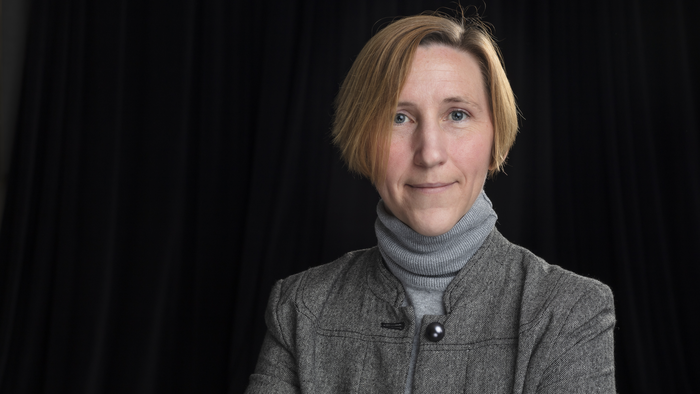Kelly Chipps, a nuclear astrophysicist at the Department of Energy’s Oak Ridge National Laboratory, has been appointed to the Nuclear Science Advisory Committee, or NSAC. The committee provides official advice to DOE and the National Science Foundation, or NSF, about issues relating to the national program for basic nuclear science research.

Credit: Carlos Jones/ORNL, U.S. Dept. of Energy
Kelly Chipps, a nuclear astrophysicist at the Department of Energy’s Oak Ridge National Laboratory, has been appointed to the Nuclear Science Advisory Committee, or NSAC. The committee provides official advice to DOE and the National Science Foundation, or NSF, about issues relating to the national program for basic nuclear science research.
“I am honored and humbled to have been appointed to this committee, particularly at a time when we are setting long-range priorities for the field. I take that role very seriously,” said Chipps, who was sworn in for her three-year term on March 3. The planning process resets about every seven years.
Established in 1977, NSAC provides expert advice and recommendations on complex scientific, technical and programmatic issues.
The committee reports to Asmeret Asefaw Berhe, director of the DOE Office of Science, and Sean Jones, assistant director of NSF’s Directorate for Mathematical and Physical Sciences. In making the appointment, Berhe and Jones wrote, “You will have an important responsibility to provide advice to the agencies on the nuclear physics program. You will be asked to provide expert advice in the field of nuclear science, as it relates to fundamental understanding of nuclear reactions, nuclear structure and applications.”
“I want to see the nuclear science field flourish,” Chipps said. “It provides fundamental understanding of the universe, from how protons and neutrons arrange inside an atom to how stars explode and create elements. Its applications range from medical isotope production and nuclear energy advancements to nuclear stockpile stewardship. Nuclear physics can have significant impacts on many aspects of our daily lives.”
A research staff member in ORNL’s Physics Division, Chipps studies nuclear reactions critical to understanding extreme astrophysical environments, using beams of radioactive atomic nuclei not normally found on Earth.
For DOE’s Office of Science, the long-range plan mainly pertains to research funded by its Office of Nuclear Physics, which provides more than 90% of U.S. nuclear science research funding. It includes experimental and theoretical studies at American universities and national laboratories and U.S. participation in select international collaborations.
“Research sponsored by the Department of Energy’s Office of Nuclear Physics gives society a better understanding of the universe, from subatomic to cosmic, and provides concrete boons such as medical isotopes, nuclear power and technologies that enhance global security,” said Cynthia Jenks, ORNL associate laboratory director for the Physical Sciences Directorate. “We are extremely proud that Kelly will advise the nation in setting long-term programmatic priorities for physics. It is testament to her expertise and leadership.”
Chipps joined ORNL in 2015 as a Liane B. Russell Distinguished Fellow after receiving her doctorate from the Colorado School of Mines and completing other postdoctoral positions. She became a DOE Early Career Award recipient in 2017 and a permanent ORNL staff member soon after that. The author of more than 100 publications, she also represents ORNL as one of the five directors of the national Exotic Beam Summer School.
Her national-level committee service has been extraordinary. She served on the committee that sets the scientific programs for two American Physical Society conferences. Also, she served on the executive committees for two of four user facilities that DOE’s Office of Science supports to advance the U.S. nuclear science mission — the Argonne Tandem Linac Accelerator System at Argonne National Laboratory and the Facility for Rare Isotope Beams at Michigan State University.
UT-Battelle manages ORNL for the Department of Energy’s Office of Science, the single largest supporter of basic research in the physical sciences in the United States. The Office of Science is working to address some of the most pressing challenges of our time. For more information, please visit energy.gov/science. — Dawn Levy




